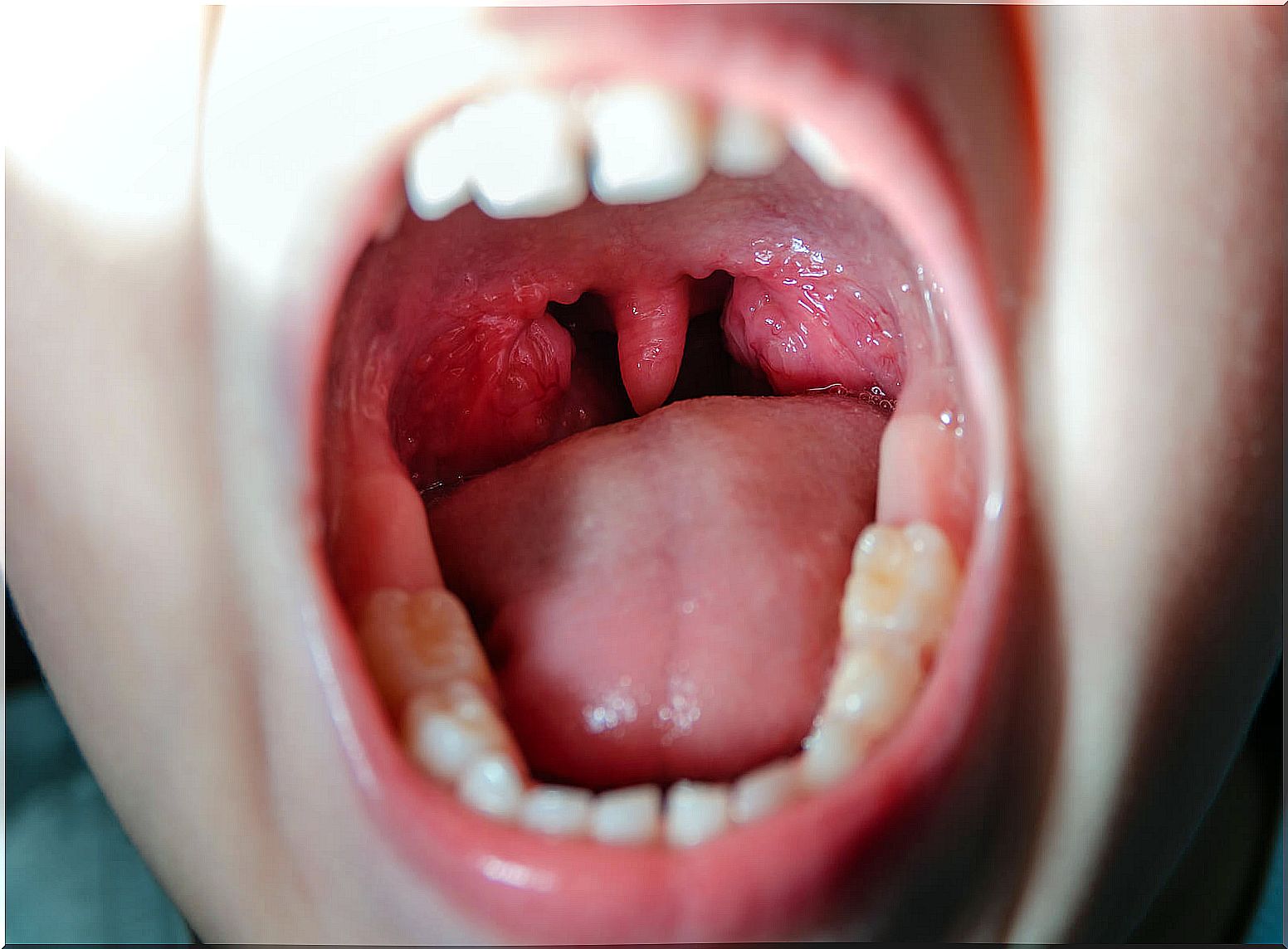Viral Pharyngitis, How To Treat It?
Viral pharyngitis is inflammation caused by a virus. It is a common infection, which in most cases does not cause complications and whose symptoms resolve in a few days.

Viral pharyngitis is the most common form of this disease . Between 60 and 80% of pharyngitis are caused by a virus, but even so in many cases they are treated with antibiotics, which is wrong, since these should be used only if the origin is bacterial.
Typically, this form of the disease occurs more frequently during cold seasons or periods. It is a contagious infection, so the best prevention measure is to avoid contact with someone who is already sick.
What is viral pharyngitis?
Inflammation of the lining of the pharynx that is caused by a viral infection is known as viral pharyngitis. The pharynx is an anatomical tube-shaped structure that connects the oral cavity with the larynx and esophagus. It is located in the neck and in an adult it measures around 13 centimeters.
Now, keep in mind that the pharynx can become inflamed for various reasons. Sometimes this happens because there is a bacterial infection or the presence of a fungus. Furthermore, in up to 30% of cases there is no pathogen.
Therefore, only one that is caused by a virus is called viral pharyngitis. The course of this disease depends on the type of virus that is involved and the management of the pathology. Only in rare cases do complications occur.

Causes of viral pharyngitis
Viral pharyngitis is usually associated with a viral infection. In other words, it is one of the symptoms of another infectious disease. When this inflammation manifests without the presence of another pathology, it is called nonspecific viral pharyngitis.
In the latter case, the disease usually has a gradual onset and causes few affectations. The normal thing is that the picture is solved in two or three days. In other cases, the viruses and associated pathologies are usually the following:
- Adenovirus, Enterovirus, and Rhinovirus. They cause colds and pharyngitis.
- Influenza virus. It causes the flu and sometimes also causes pharyngitis.
- Herpes simplex virus (HSV). In this case the main pathology is herpes simplex.
- Epstein-Barr virus. The infectious mononucleosis virus.
- HIV. It causes acute retroviral syndrome, which is accompanied by pharyngitis.
Identify the disease
The hallmark symptom of this disease is a sore throat. In addition to this, there are other manifestations that can occur with greater or lesser intensity, depending on each person. They are generally the following:
- Dry throat.
- Pain when swallowing food, or even saliva.
- Inflammation of the tonsils, also known as tonsillitis.
- Fever not higher than 38 ºC.
- Headache.
- Swollen neck glands.
- Feeling tired or fatigued
Symptoms can vary, depending on the type of virus causing the disease. In acute viral pharyngitis, the pharynx appears red and covered with mucus ; in chronic, the mucosa is pale, thin, and covered by thick mucus.
The diagnosis, in general, is clinical and is made from the history and physical examination of the patient. In a few cases, tests such as pharyngotonsillar culture are ordered to rule out bacterial pharyngitis.

How to treat it?
There is no specific treatment for viral pharyngitis. Often in these cases, home remedies are used, such as gargling warm salt water. It consists of diluting 3 grams of salt in a glass of warm water and gargling three times a day.
It is also advisable to drink a lot of water; This helps cool the throat and also helps the body cleanse itself of viruses. It is best to eat a bland diet, rest, and avoid irritants such as tobacco and spicy foods.
It is very important to refrain from taking antibiotics if the pharyngitis is viral. These are not going to help at all, and instead the person who ingests them makes the bacteria resistant to those drugs.
Rarely, pharyngitis presents complications. However, there is evidence that cases of acute pharyngotonsillitis have become more aggressive in recent years. This is a form of pharyngitis that affects the tonsils and is also caused by viruses in 80% of cases.









